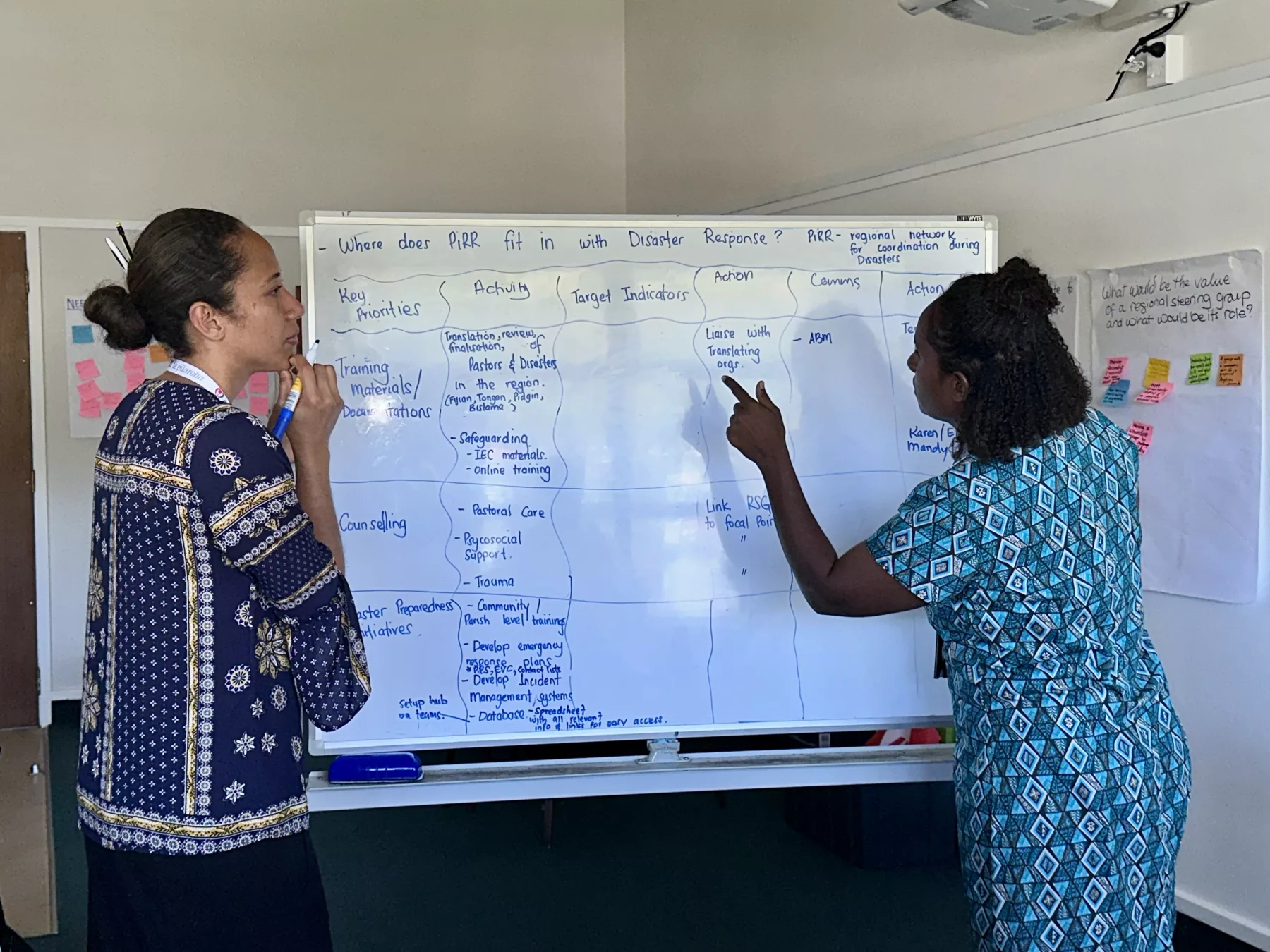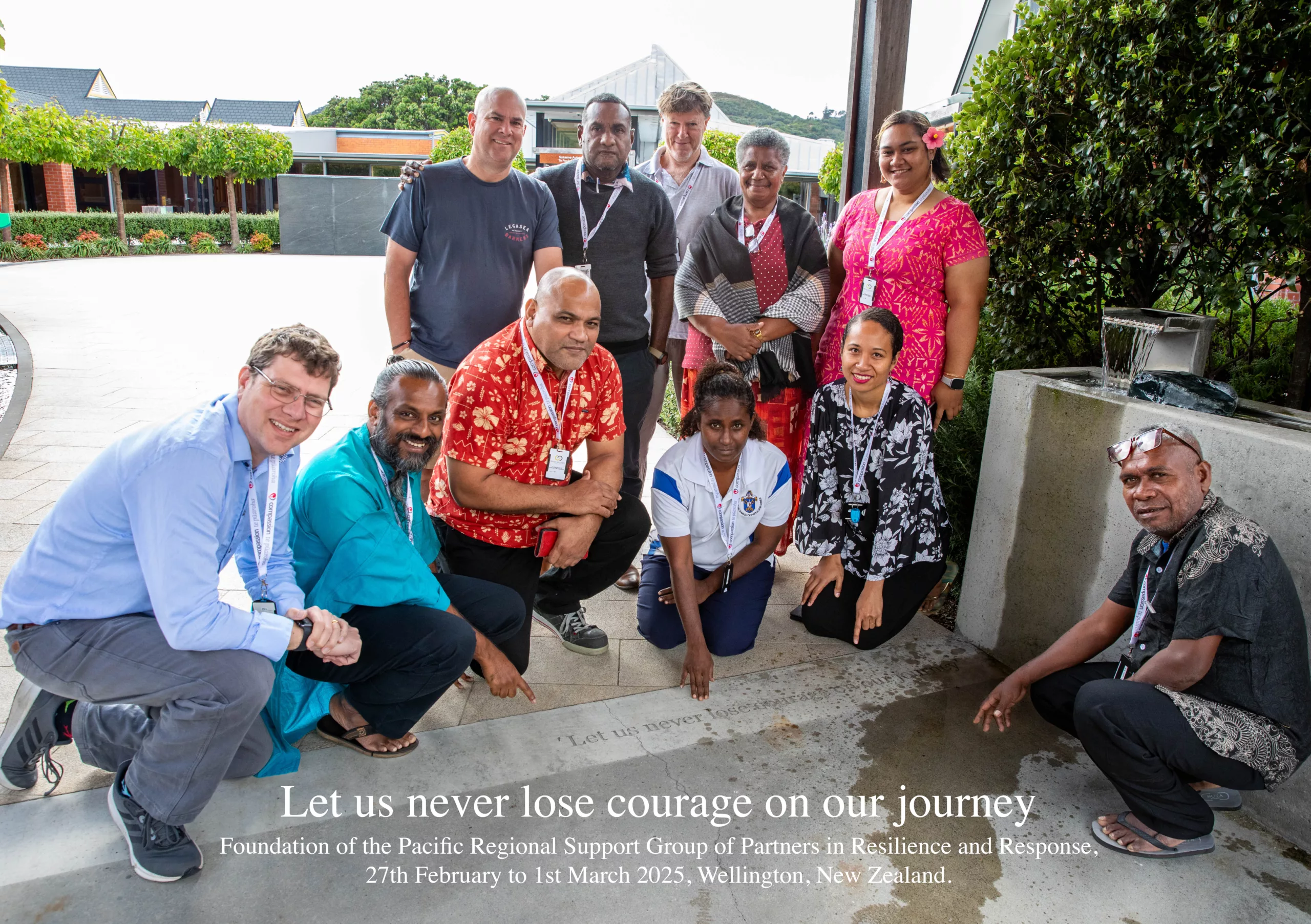The three countries most at risk from natural disasters are Vanuatu, the Solomon Islands and Tonga. They are all in the Pacific. So are Papua New Guinea and Fiji, which come in at numbers 9 and 14, respectively. It is therefore unsurprising that the churches in the Pacific have a great deal of experience of responding to disasters and helping their communities prepare for and come through them.
This wealth of knowledge has been much in evidence throughout the consultation that has just concluded in Wellington, New Zealand. Convened by the Anglican Alliance and Episcopal Relief & Development under the Partners in Resilience and Response (PiRR) initiative and hosted by Anglican Missions (New Zealand), the gathering drew together participants from the Solomon Islands, Tonga, Samoa, Vanuatu, Fiji and Papua New Guinea, along with representatives of Anglican Missions and the Anglican Board of Mission (Australia).
The principal purpose of the meeting was to establish a regional steering and support group to drive forward resilience-building and disaster response that is ‘up to standard’ across the region, as Taniela Koloamatangi, Anglican Missions Project Officer in Tonga, put it. There is already a great deal of experience and excellent practice in the Pacific and the regional support group will allow for the sharing of this knowledge within the region and provide a mechanism to build on it together. The group will enable greater collaboration and provide a vehicle for mutual support. It will also oversee the deployment of accompaniers when local capacity is overwhelmed in times of disaster and churches ask for additional support.
“Spending the last few days with this dedicated team of practitioners has highlighted the unique gifts of the church in Pacific”, said Nagulan Nesiah. Nagulan is the Senior Program Officer at Episcopal Relief & Development and has played a leading role in developing PiRR. He continued, “Each disaster incident (occurring with increasing frequency and intensity) has strengthened their disaster preparedness and response mechanisms. While contexts and church structures are different in the countries in this region, they have a lot of learn from each other, and a lot to share with the rest of the Communion. It has been a joy to be with the Pacific PIRR community and I look forward to the journey ahead.”
Reflecting on the meeting, Annsli Kabekabe, who is spear-heading resilience and disaster response training in Papua New Guinea, said, “We now have a good road map. I know where I’m going and what I have to do. At the end of the day, it’s our people who matter most, so it’s great to know how I can help them.”
Karen Chute, who is seconded from Anglican Missions as the Anglican Alliance’s Pacific Facilitator, said: “It means a lot to know that we have each other’s backs at the regional level. Together, we can accomplish so much more. And I believe in the ripple effect of what we do – that it will slowly bring changes.”
Ethel George, the Women’s Desk Officer for the Anglican Church of Melanesia, Vanuatu, spoke about the value of meeting face to face, saying, “Meeting online is good but meeting in person you have the opportunity to learn more from others – more than online. Online is structured in a way that you only share what you are asked to share and it’s more time limited. Meeting together is more first-hand learning – I learn a lot, not only within the training or workshop but also over lunch, in the tea breaks, in the evenings. I see people online and recognise them, but don’t really know them well, but when we come face to face, I can ask more questions and draw more from you. We get better relationships and connections face to face.”
Mark Mitchell from Anglican Missions echoed this sentiment, saying, “We reflected yesterday on being one body* – and that’s what we have seen, been and are. It’s all about connection and relationship”.
* “If one member suffers, all suffer together; if one member is honoured, all rejoice together.” 1 Corinthians 12:26.
The Bible study on the final day was led by Casper Supa, ACOM Programmer Coordinator. Reflecting on Acts 1: 4, 5 and 8, Casper said, “Our work here is about mission, about spreading good news – in this case, the good news of disaster resilience, that people can better withstand disasters. Our work now has started, and we must start from this very place. Let us never lose courage on our journey”.
Please join us in praying for the newly established Pacific regional support group as they start to implement their work plan in the coming weeks and months.

Karen Chute (left) and Annsli Kabekabe.

